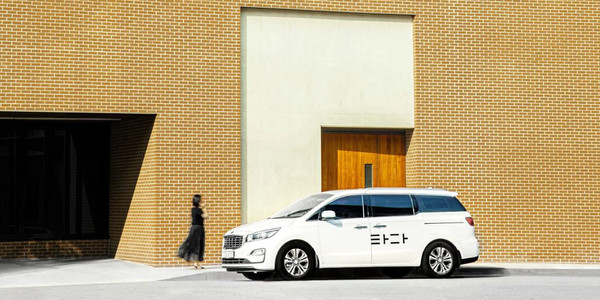By Seo Jeong Yun WIRED Korea
The rapid spread of the coronavirus epidemic, a new serious respiratory disease, has given breathing space to a van-hailing service, whose operators were still worried about the prospect of their service being folded up despite a recent court ruling made in its favor.
On February 19, a trial court ruled that car-sharing app operator Socar and its subsidiary, VCNC, which matches riders with drivers contracted to run Socar-owned Tada vans on its app, had breached none of the laws on transportation since they started the van-hailing service in 2018.

Despite the ruling, or rather because of it, lawmakers concerned vowed to speed up the process of legislation banning the kind of service provided by VCNC. They did so, apparently with votes of taxi drivers in mind ahead of the April 15 general elections.
For their part, special interest groups representing taxi drivers and taxi companies threatened to vote against the lawmakers concerned if they failed to pass the bill against the Tada service during the current extraordinmary session of the National Assembly. They also threatened to stage a mass outdoor rally and condemn Socar and VCNC in the court of public opinion.
With the contagious disease now sweeping the nation, the National Assembly has suspended its entire operation, derailing the process of legislation. Taxi drivers have put their planned demonstration on hold.
Relieved of pressure from lawmakers and taxi drivers, Lee Jae-woong, CEO of Socar, is now proposing to other corporations to share ideas of eradicating the coronavirus and overcoming national crisis.
He has written on Facebook: “All of us have to try and overcome the crisis posed by Coronavirus 19 (officially known COVID-19). When we share ideas of overcoming the crisis, other people and other corporations will learn from the ideas and put them into practice quickly.”
Now is the time, he said, when “businesses ally themselves and help one another (in the fight against the epidemic), instead of being preoccupied with sales that are falling and cash flows that are drying (because the virus is going out of control).”
At the center of the legal dispute over the van-hailing Tada service was whether Socar and VCNC were doing taxi business in violation of the Passenger Transport Service Act, as taxi drivers claimed, or doing a rent-a-car business, as the Tada service providers insisted. The prosecutors demanded one year in prison for each of the Socar and VCNC CEOs, charging that they breached the law when they started their service without obtaining tax business licenses.
When the judge was handing over a ruling on the case, he said the Tada service did not veer away from the one exception to the law, which permitted a person to rent a vehicle with its seats ranging from 11 to 15 and hire a driver for the vehicle. One using the service, he said, went into a short-term contract to hire a driver for a vehicle from the legal point of view, even if the service looked similar to riding on a call taxi.
Prior to the ruling, the prosecutors claimed that assigning a driver for transportation when the starting point and the destination were put in on the app was little different from a mobile-based call taxi service. Moreover, they said, a fare was determined based on the distance covered, as was exactly case with the call taxi service.
To this argument, the judge said Tada was a mobility service optimized by technological innovation. By this remark, he took sides with advocates of the Tada service, who accused the prosecutors of being little different from those supporting horse-drawn carriages when they were being replaced automobiles.
Even if the service were deemed to have breached the law, the judge said, it would not have been intentional. As a reason, he cited the fact that the service fee was larger than the taxi fare, that vans, not cars, were used for the service, that its operators had a legal review of the service conducted and had consultations with the Ministry of Land, Infrastructure and Transport prior to its start.
Despite the ruling, the battle is not over yet. The possibility cannot be ruled out that the trial court ruling will be overturned if the prosecutors bring the case to a higher court, as they are most likely to. Another possibility is that lawmakers may choose to start a process of legislation again to ban the Tada service when a new National Assembly starts operation, with its members being selected in the upcoming general elections.
Against this backdrop, Socar and VCNC hope that the lower court ruling will prevail and that lawmakers will stop attempting to put an obstacle to their service. Lee of Socar says, “Now, we would like to talk about the future. Our mobility startup is full of hope, as we are working on our new businesses.”
Socar and VCNC will have to come out of the euphoria they may have felt after the lower court ruling. The sooner, the better. Now they need to start drumming up support from consumers disaffected with poor taxi services and advocates of business innovation for better service if they are to build public opinion in their favor and, thus, exercise influence on the National Assembly and the court to their advantage.
The above is a translation of Seo Jeong Yun’s Korean-language article by Choi Nam-hyun, deputy editor in chief at WIRED Korea.


 뉴스레터 신청
뉴스레터 신청